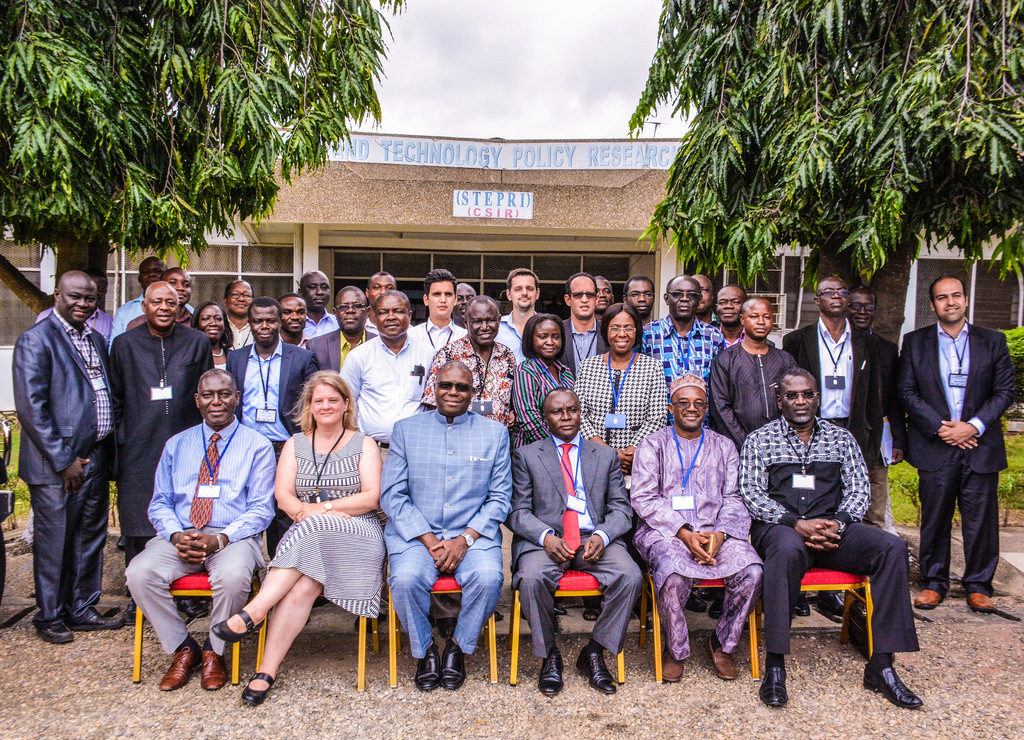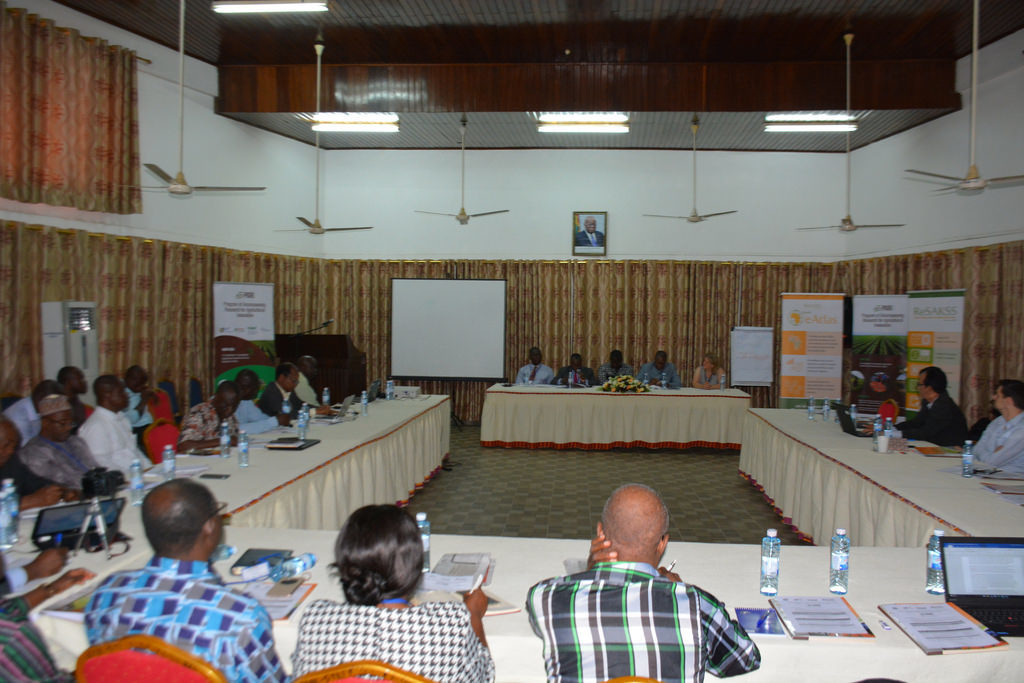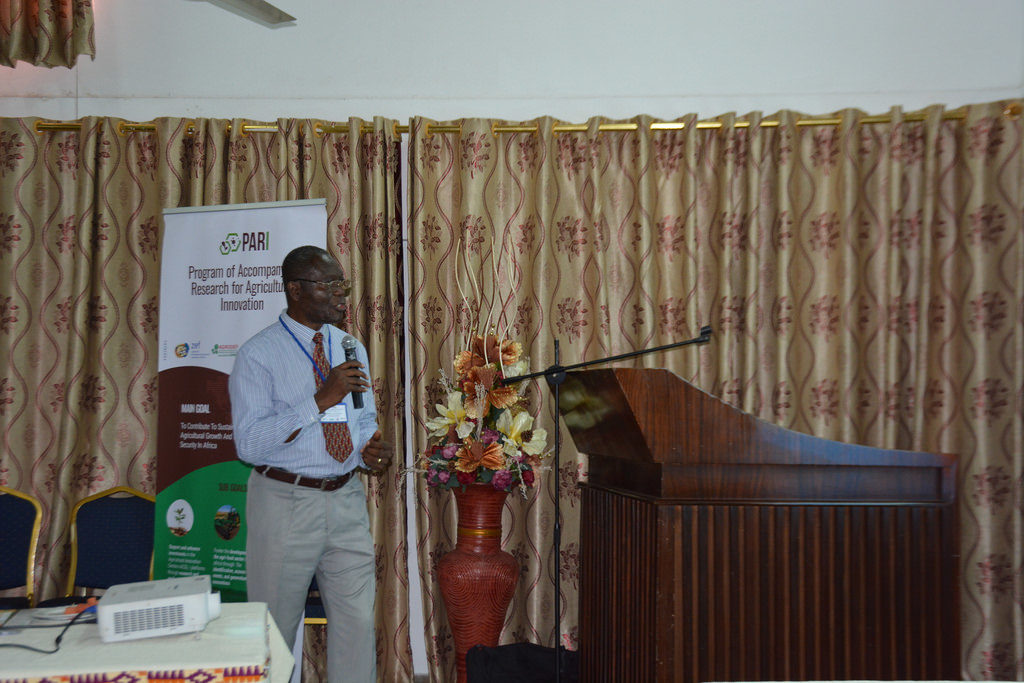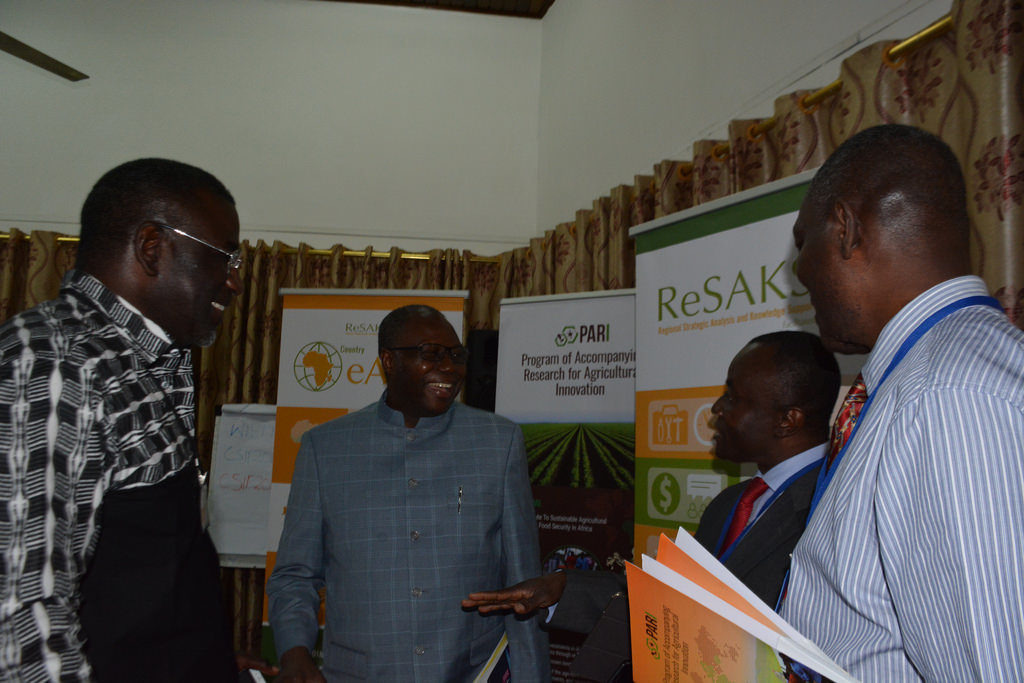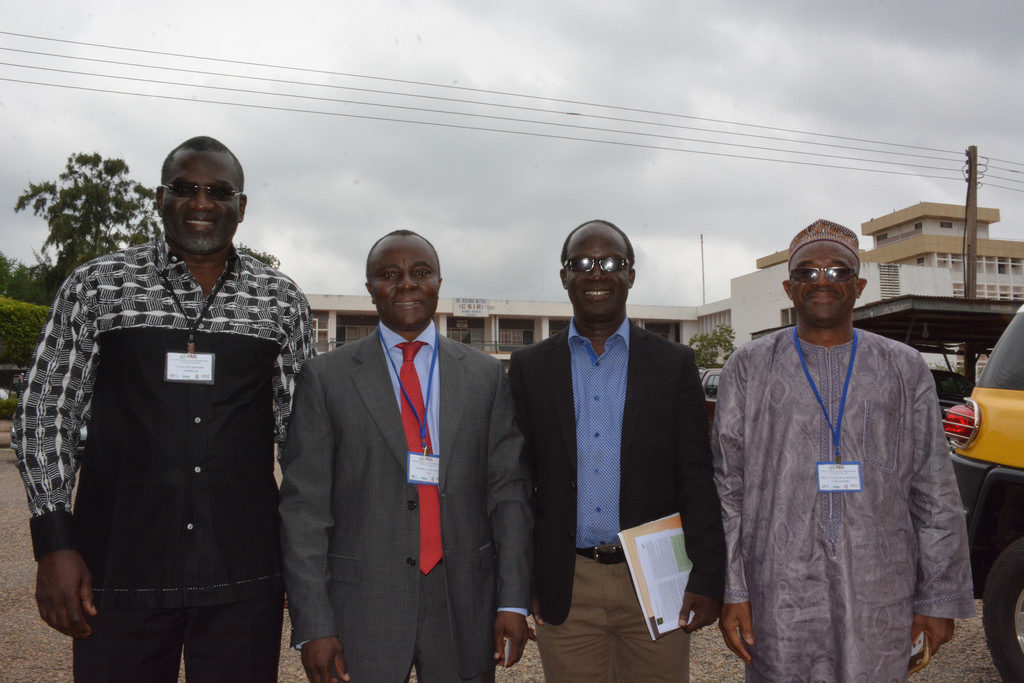On July 31- August 1, 2017, leading agricultural stakeholders from government, private sector, farmer groups, research and development cooperation met in Accra, Ghana for the first national policy roundtable under PARI to discuss policy measures needed to promote agricultural development in Ghana. The Policy Roundtable was organized by PARI and hosted by the Science and Technology Policy Research Institute (STEPRI) of the Council for Scientific and Industrial Research (CSIR).
The goals of the roundtable were to:
- Present preliminary research findings of relevance to the respective country to key stakeholders engaged in national innovation processes.
- Ground-truth the findings with local expertise and receive feedback and guidance on further research.
- Jointly identify policy implications of the research, especially scope for promising innovations that would serve agricultural development, jobs and food security.
Ouctomes:
Participants agreed that technological and institutional innovations are crucial for advancing agricultural growth in Ghana. They highlighted a number of priority areas for policy actions to target the necessary innovation investments:
Develop the entire value chain, not just production. Participants emphasized the need for a broader focus in agricultural research, policy and financing. A study by CSIR-STEPRI presented at the Roundtable shows that much of the agricultural research in Ghana to date has focused on crop varieties for only a few crops. Additional research along the entire value chain and for other products (including livestock and fisheries) and soil management practices is urgently needed since all these help to improve food production and food security in the country. To advance mechanization among smallholder farmers, appropriate and affordable machinery need to be developed and made available to improve production but also processing of produce to reduce post-harvest losses and add value.
Collect and share accurate and timely agricultural statistics. The importance of reliable statistics for decision-making was repeatedly stressed at the meeting. Participants called for improving institutional capacities and arrangements to collect and disseminate agricultural data. This should include bringing together existing data and investing in data collection and analyses. The statistics should be kept in one place to enable easy access by potential users.
Improve financing along the entire value chain. Participants warned that even though agricultural investments are improving in the country, agricultural growth is not keeping pace. To address this dichotomy, better targeting of investments at the right points or nodes in agricultural systems is need. An agricultural financing policy should be developed to improve access to finance for farmers and the private sector. This improvement in agricultural financing should not ignore increases in funding for innovation research along the various commodity value chains.
Recognise, document and protect farmer innovations. Participants highlighted the innovative capacities of farmers to improve agricultural production as a complement to science-based innovations. Farmer innovations need to be documented and verified with the help of the research community and made available to a wider audience. As part of this effort, strong intellectual property protection for farmer innovations are required to protect the innovators and ensure that they benefit from their inventions.
Develop seed value chains. Access to high-quality seeds was highlighted as one of the main constraints to improving agricultural productivity in Ghana. Addressing this problem will require improving the entire seed value chain, including strengthening institutions mandated to facilitate seed production and multiplication as well as better financing for private sector seed companies, strong intellectual property protection for breeders and increasing the number of certified seed producers with effective quality control.
Participants stressed that these actions need to take into account the high heterogeneity in agricultural potential, agricultural efficiency and skill levels across the country in order to ensure that investments are adapted to local realities.

